Nicola Sturgeon: Air strikes risk dangerous escalation
- Published
RAF planes took off from their airbase in Cyprus ahead of the strikes in Syria
Nicola Sturgeon said UK foreign policy should be set by Parliament and not Donald Trump after the US, UK and France bombed targets in Syria.
The missile strikes were in response to a suspected chemical attack on the Syrian town of Douma last week.
Scotland's first minister said the suspected use of chemical weapons was "sickening" but warned that the latest action risked "dangerous escalation".
Scottish Conservative leader Ruth Davidson backed the air strikes
She said the international community recognised that "chemical weapons cannot be used with impunity".
Scottish Labour leader Richard Leonard described the air strikes as "legally, morally and democratically questionable".
Explosions hit the capital, Damascus, as well as two locations near the city of Homs, the Pentagon said.
The wave of strikes is the most significant attack against President Bashar al-Assad's government by Western powers in seven years of Syria's civil war.
Russia's ambassador to the US responded by saying the attack on its ally "will not be left without consequences".
Prime Minister Theresa May said there was "no practicable alternative to the use of force".
The PM said the use of chemical weapons could not be allowed
Responding to UK involvement in the air strikes Ms Sturgeon said: "My thoughts this morning are with service personnel called to action.
"We cannot tolerate Syria's use of chemical weapons on a civilian population - but there has been no explanation from the prime minister or the president on how this action, taken without parliament's approval, will halt the use of chemical weapons or contribute to a long term peace in the area.
"Air strikes by US and UK forces have not resolved the situation in Syria in the past and I am not persuaded they will do so now.
"This action risks not just further escalating the civil war in Syria but also a dangerous escalation of international tensions."
The first minister called for "urgent confirmation" from Theresa May that there will be no further action and no change to the role of UK military in regards to Syria "without a full parliamentary debate".
She added: "An international strategy is urgently required to bring peace and stability to the region.
"UK foreign policy should be aimed at reaching an international consensus not simply complying with presidential wishes."
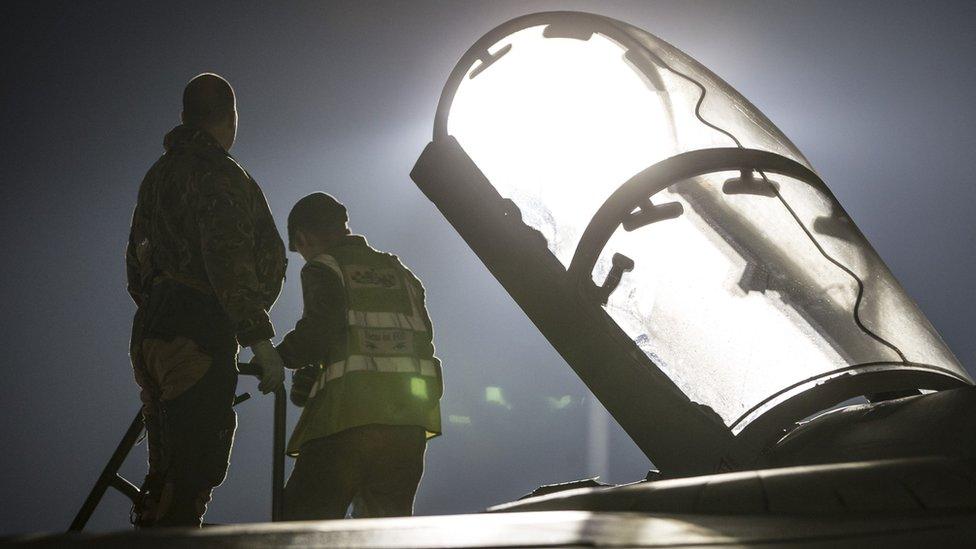
Scottish Conservative leader Ms Davidson said: "Last night's air strikes were targeted at the Syrian regime's chemical weapon facilities and in direct response to the chemical attack on Syria's civilian population in Douma last week.
"While carried out by UK, US and French military personnel, the strikes have the express support of the EU and NATO, as well as the governments of Canada, Australia and Germany, among others.
"The international community recognises that chemical weapons cannot be used with impunity, and that last night's targeted action will degrade the ability of the Assad regime to further develop and deploy chemical weapons in future."
Labour's Mr Leonard said: "Despite having no majority, there has been no consultation with Parliament on any military action, and no agreement with the UN.
"Political avenues should be exhausted before such a serious step is ever taken, yet the prime minister has been rushed into legally, morally and democratically questionable air strikes at the behest of Donald Trump.
"Britain should be taking a lead role in negotiating an end to the Syrian conflict and halting the abhorrent use of chemical weapons, rather than putting more innocent civilians at risk, and British military personnel too."
"I panicked and text my mum": Moutaz, a Syrian living in Glasgow, on hearing the news
Scottish Greens co-convener Patrick Harvie condemned the air strikes, saying the history of UK and US military intervention "shows the huge danger that we make matters worse, not better".
He added: "If the West was serious about moving towards a just peace in Syria, we should impose sweeping sanctions on Russia, Iran and their financial activities, particularly in the City of London.
"Without forcing a change in their role, ending Assad's brutality will be all but impossible."
Moutaz Hamdan, a Syrian researcher at Strathclyde University in Glasgow, who has been living here since 2011, told the BBC he panicked when he heard about the air strikes.
He has spoken to family members in Damascus who told him they were okay.
"They were really, really worried and scared in the morning," he said.
"The air strike happened just about 4 o'clock local time there, so people were still asleep, some were awake for morning prayers. They woke up to big explosions for around an hour.
"My mum told me they counted over 100 missiles and they could not identify where the sound was coming from, all around."
- Published14 April 2018
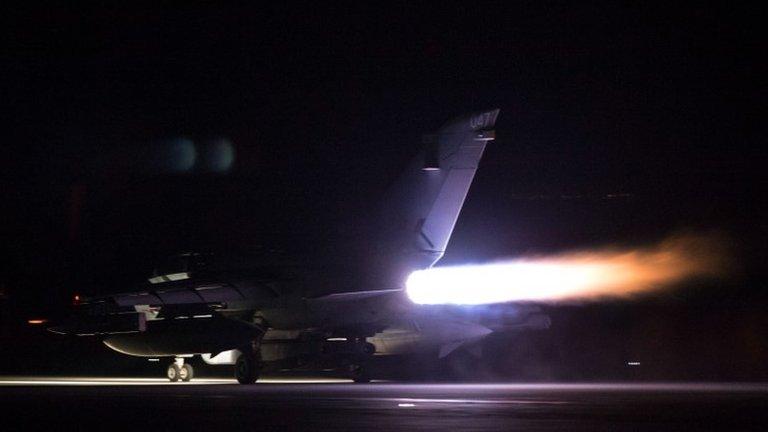
- Published14 April 2018
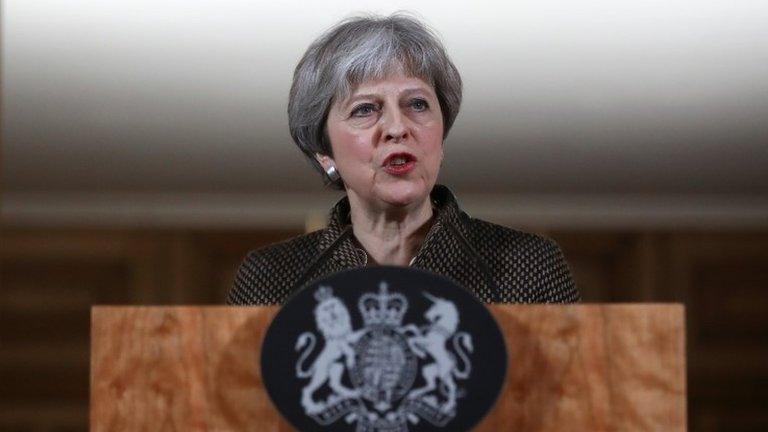
- Published14 April 2018
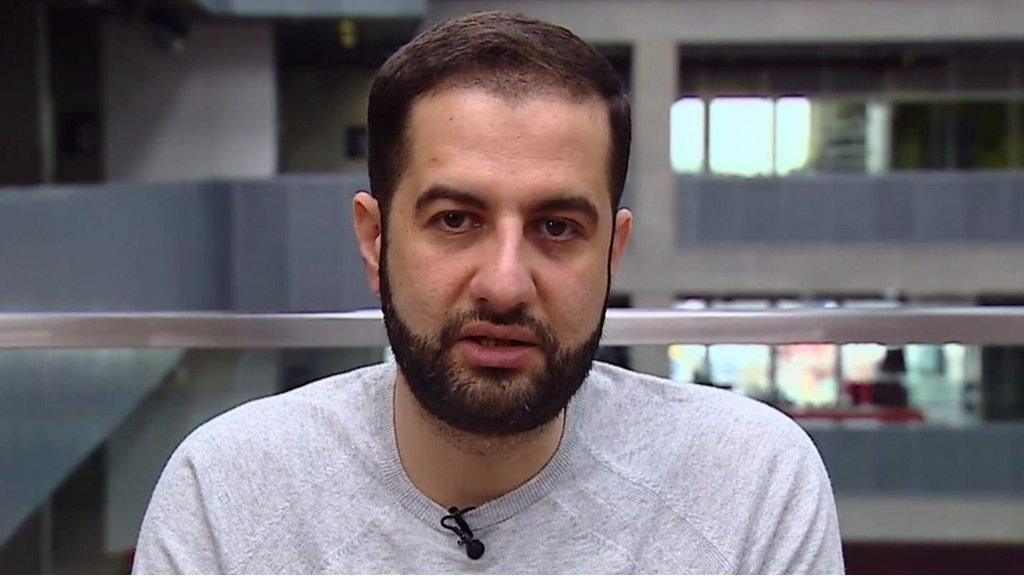
- Published14 April 2018
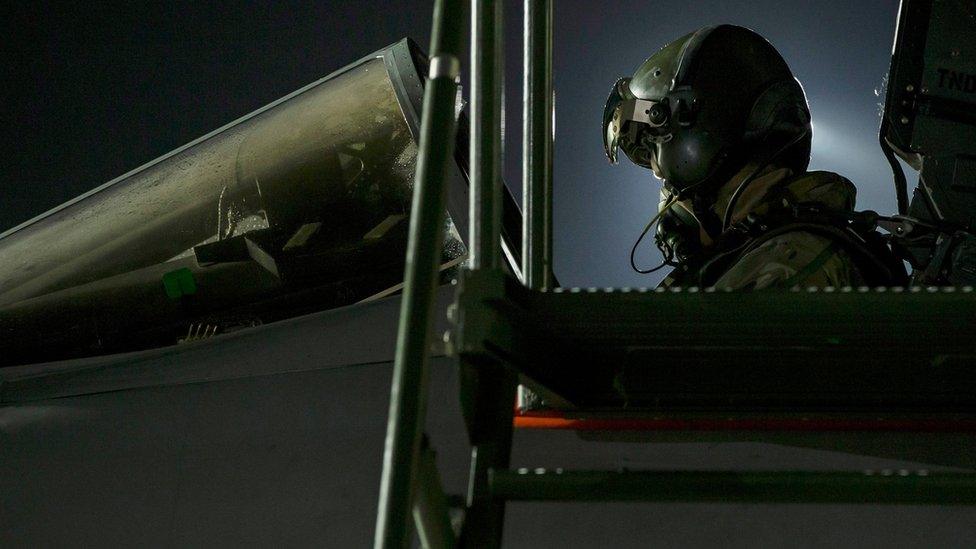
- Published14 April 2018
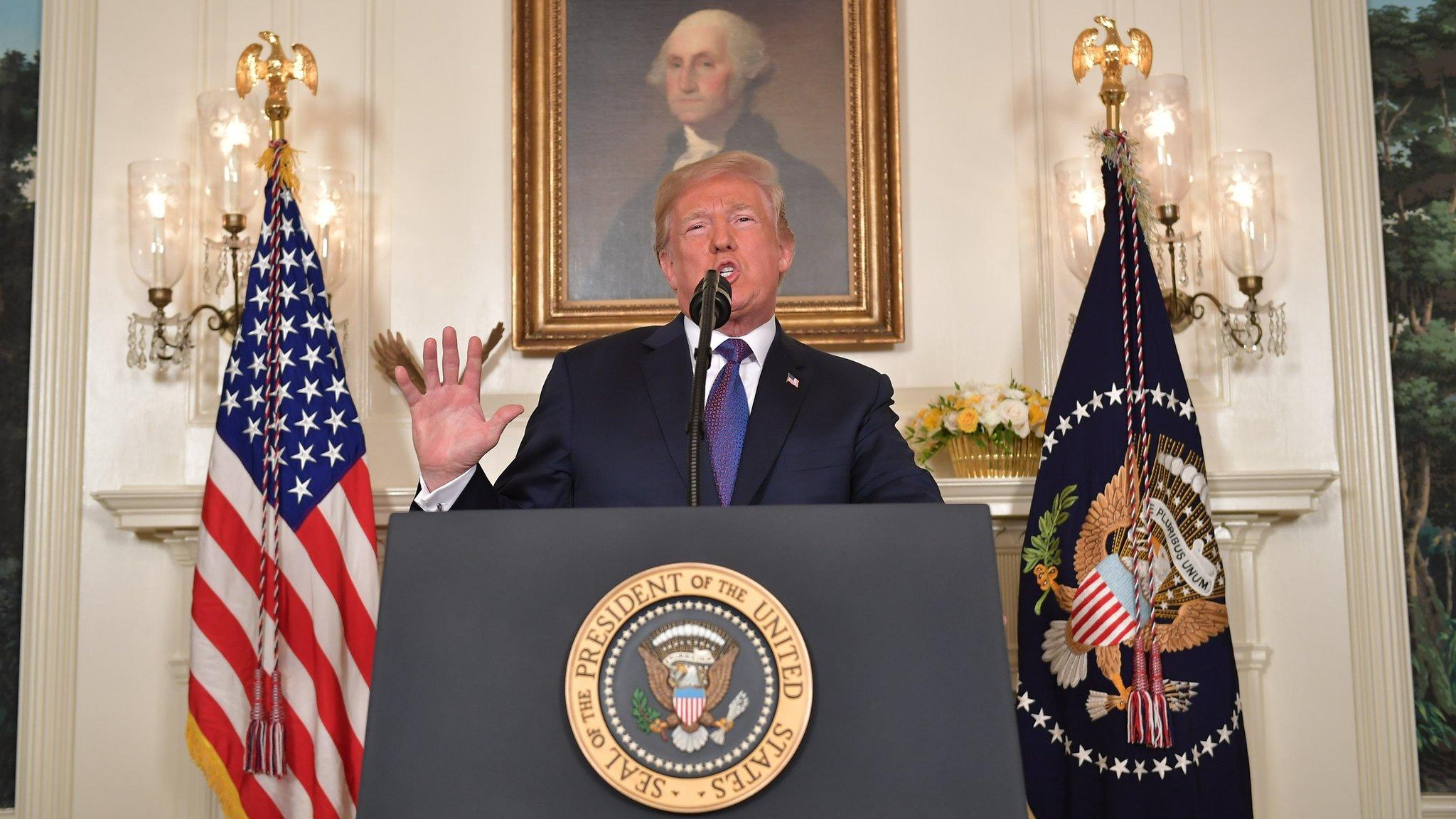
- Published2 May 2023
